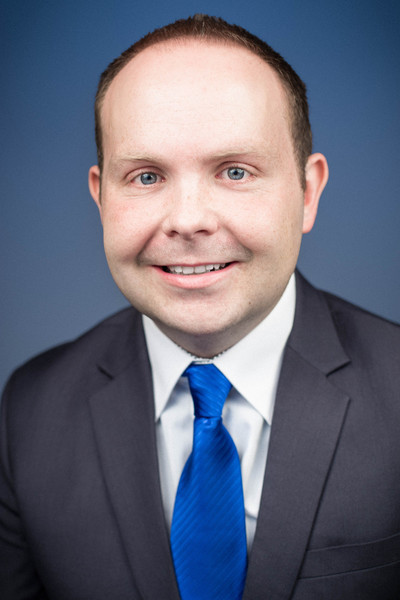
An MBA can be an acronym for more than “Master of Business Administration.” Among romantics, it might stand for “Making Business Accessible” or “Mind-Blowing Abilities.” For cynics, the program could be boiled down to “Marriages Break Apart” or “Major Burdens Ahead.”
Home wrecker reputation aside, an MBA isn’t an easy path. That’s particularly true for the executive population. Among the full-time students, there is a popular acronym called FOMO: Fear of Missing Out. For them, missing out means passing on clubs, case competitions, recruiter visits, and trips. EMBAs can only dream of choices being so clear. Missing out, to them, involves skipping their children’s games and recitals. It is a chaotic life, nomadic even, constantly on the go, wrestling with gut-wrenching trade-offs with little time to reflect, refresh and re-connect. Short of time and sapped of energy, EMBAs understand that something — career, marriage, school — will ultimately suffer.
You won’t find that in the brochure. Then again, choosing an EMBA is more about gut emotion than grave contemplation. For many, the decision stems from that unshakable sense that they’d fallen behind or grown stagnant and out of touch. For others, it is finishing school, the final step after years of painstaking grooming for the c-suite. While the goal — to become so much more — was always the same for these students, the takeaways were often more than expected.
MIT COHORT IS LIKE A “PERSONAL WIKIPEDIA ON STEROIDS”
As part of Poets & Quants’ Best & Brightest series, we asked nominees to share what they enjoyed most about business school in general. Across the board, the same theme emerged: They loved their classmates.

Duke University’s Phil Thomas
The University of Toronto’s Rodney Cheung would go so far as calling his peers an extended family. Despite the class boasting a number of “competitive type A personalities,” Cheung wasn’t prepared for how swiftly the dynamic shifted. “The most enjoyable aspect was how we grew together as a class during the year to form strong bonds and help each other.”
Such bonds were often forged outside the classroom, says Duke University’s Philip Thomas, particularly during class trips overseas. “Each day would be an overload of academic and cultural knowledge with some of the smartest people you could ever be around,” he beams. “Using a day in Dubai as a snapshot — there aren’t many courses you can be learning Managerial Economics from the exceptional Jeremy Petranka in the morning, meet the directors of Emaar Properties (and ascend the Burj Khalifa) in the afternoon, spend the evening in the company of the aforementioned smartest people on a team assignment, and finish the night over a drink with your new-found friends in one of the best bars on the planet.”
Sound like a blast? It wasn’t all fun and games. AT MIT, Barry Stein, a renowned Vascular and Interventional Radiologist, described his cohort as “talented, multidimensional, generous, vibrant, curious, and collaborative leaders.” In fact he equates them to having his “own personal Wikipedia on steroids” at his fingertips. “I have experienced endless joy participating in highly effective cross functional teams to conquer apparently impossible challenges.”
“I WILL CONTINUE LEARNING FROM THEM IN THE YEARS TO COME.”
As a 21-year U.S. Air Force veteran who rose to the rank of Command Chief Master Sergeant, Killjan Anderson was accustomed to teamwork and camaraderie. Even for him, business school took the group-first concept to a higher level. “There are definitely more tasks to juggle than time, but once we really started collaborating and effectively carving-up responsibilities, the workload became much more manageable,” he reminisces. “It reminded me a lot of the military: staring down a tough mission, but somehow, together, getting through it.”
Jacqueline Manger, a hedge fund COO, even experienced some culture shock as a University of Maryland EMBA student. Heading up a small firm for two decades, she had little opportunity to problem solve in larger teams. In class, however, she would often be collaborating in teams of eight. “I enjoyed learning from others through the questions they asked and from the varied professional experiences they brought to the discussions,” she shares. “It has been wonderful to really exercise my teamwork muscles and navigate managing and influencing “sideways” without the authority of title or position.”
It wasn’t just the students who earned accolades, either. At Wharton’s San Francisco program, Todd Wilson, who entered Wall Street as a teenager, was astonished by both the quality and diversity of his classmates. However, he also found the faculty to be difference makers. “While I expected a high caliber of both, my expectations were exceeded. The ability to learn from these classmates and instructors on the weekend and then directly put it into practice the following Monday made the experience even more valuable.”
Perhaps the biggest value-add for this year’s Best & Brightest was this: The relationships will only grow, which means the learning will never stop. That was the takeaway for Renee Vieira, who oversees leadership development for Time Warner. For her, earning an EMBA was the only the beginning of her education. “I am still in touch with many classmates and believe that I will continue learning from them in the years to come.”
DON’T MISS: THE BEST & BRIGHTEST EMBAs: CLASS OF 2017





Questions about this article? Email us or leave a comment below.